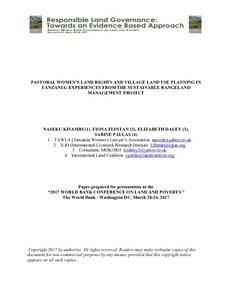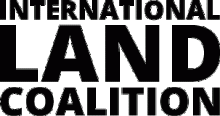Resource information
In pastoral societies women face many challenges. Some describe these as a ‘double burden’ – that is, as pastoralists and as women. However, pastoral women may obtain a significant degree of protection from customary law even if customary institutions are male-dominated. In periods of change (economic, social, political), this protection may be lost, and without protection from statutory laws, women are in danger of “falling between two stools” (Adoko and Levine 2009). A study carried out in four villages in Tanzania, supported by the International Land Coalition, sought to understand the challenges and opportunities facing pastoral women with respect to accessing land and resources, in the context of village land use planning. This research presents empirical data on pastoral women’s land rights, shedding light on some of the detail of these rand their manifestation taking into account the differing contexts, land use patterns, and nature of rights to land. There are some common themes – particularly around the challenges facing women in pastoral communities including lack of space to make their views heard, lack of awareness of their rights, coupled with broader governance challenges. New processes underway such as a government-led review of Tanzania’s land policy provide opportunities to overcome these challenges.



